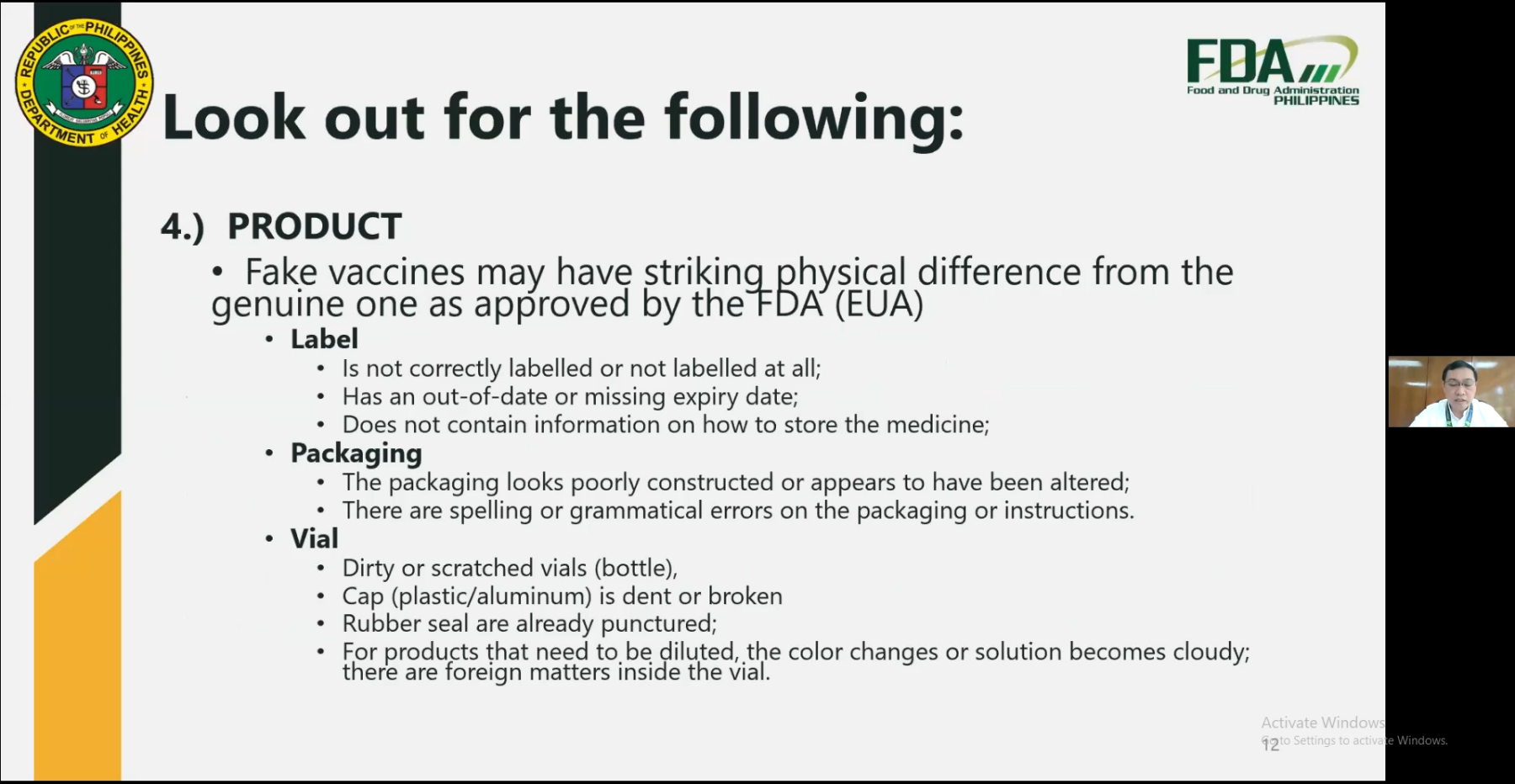By Mark Fetalco
The Food and Drug Administration (FDA) on Tuesday gave some tips on how to spot fake and adulterated COVID-19 vaccines amid reports of fake jabs that were found abroad.
FDA Deputy Director-General Dr. Oscar Gutierrez Jr. said criminal groups have been active in producing fake vaccines by imitating the genuine ones which are labelled and packaged to a high standard. He added that a laboratory test is sometimes the only way to identify the difference between fake and genuine vaccines.
“Although difficult to spot one, there are striking physical differences from genuine ones that were approved by the FDA,” Gutierrez said in an online media forum.
He said fake vaccines are not correctly labelled or not labelled at all; have an out-of-date or missing expiry date; and do not contain information on how to store the medicine.
When it comes to packaging, fake vaccines are poorly constructed or appear to have been altered, and there are spelling or grammatical errors on the packaging or instructions.

Gutierrez also advised checking if the vials are dirty or scratched; caps are dented or broken; rubber seals are already punctured; and for products that need to be diluted, the color changes or the solution becomes cloudy, or there is foreign matter inside the vial that can be observed.
The FDA reiterated that the vaccines available in the country are issued an emergency use authorization (EUA) and not a Certificate of Product Registration, which only means no COVID-19 vaccines are allowed to be sold to the public.
So far, there are only four authorized COVID-19 vaccines in the Philippines which have been given an EUA: Pfizer, AstraZeneca, Coronavac, and Sputnik V.
“We make sure to get our COVID-19 shots only from DOH (Department of Health)-authorized vaccination sites. Never buy COVID-19 vaccines online, marketplace, and drug outlets. The government will provide and make sure that the vaccines are available for free,” Gutierrez said.
He also said COVID-19 vaccines are offered for free under the government’s vaccination program and administered only by licensed health practitioners.
“No reservation, enlistment, or schedule fees or advance payment, whether in full or partial, are required. It is free,” Gutierrez emphasized.
The FDA also warned the public against buying these products online as it “runs the risk of ill-health and giving their money to organized criminals.”
Gutierrez said the risks include toxicity and death for those adulterated products with hazardous substances. He added that they are ineffective and give people a false sense of protection, which may lead to infection and the spread of the disease in the community.
The FDA is planning to hire workers to go after those who deceive people online.
“What we will do next week is to augment our inspectors and enforcers under the FDA and Department of Health by assigning people in the NCR (National Capital Region),” Gutierrez said, adding that they need to augment in NCR because there are more reports of fakes coming from Metro Manila.
He said this is in preparation not only for vaccines, but also for other health products including foods, drugs, cosmetics, and hazardous substances.
So far, after inspections were made to verify reports on fake vaccines, Gutierrez said they didn’t find any jabs that are either fake or genuine as reported.
The public may report to FDA’s hotline (02) 809-5596 or email [email protected] or [email protected].
